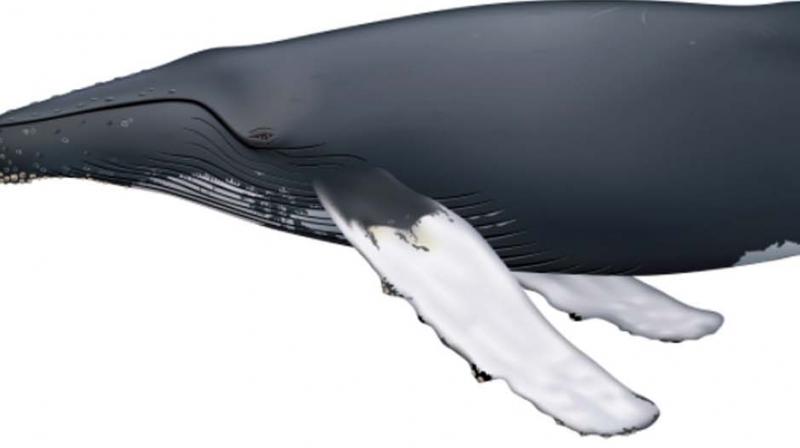Humpback whale Luban off to Lanka after New Year splash by Kerala
She is one of 14 whales tagged by Environment Society of Oman under Renaissance Whale and Dolphin Project.

Thiruvananthapuram: Luban, the humpback whale which reached Kerala waters on the New Year day, has finally moved to Sri Lanka.
Researchers had tracked the female marine mammal to one of the 14 whales tagged by the Environment Society of Oman under the Renaissance Whale and Dolphin Project. Luban was only female among them.
Humpback whales travel 25,000 km annually from the cold polar waters, where they feed on crustaceans called krill in summer, to breed in the tropics during winter.
A. Biju Kumar, director, research, of the department of aquatic biology and fisheries of the Kerala University said Luban in Arabic is Frankincense tree and it got the name for the tree-shaped pattern at the base of its tail fluke.
It began heading east, across the Indian Ocean on December 12.
After completing a journey of around 1,500 kilometres, it reached off the coast of Goa during the last week of December. It stayed 30 km off the Kochi coast on the New Year eve and had started moving further south towards Alappuzha on New Year.
The department has been partnering with the Omanese society in tracking the animal as part of the efforts for documenting the marine biodiversity of Indian waters, said Dr Kumar. The humpback whale which is scientifically named Megaptera Novaeangliae is one of the four species of baleen whales occurring in Indian waters.
Recent scientific studies reveal that Arabian humpbacks are mysterious, having only been discovered as a genetically distinct humpback population in 2007.
There was a theory that Arabian humpbacks which are only around 100 in numbers are the only humpback whales that do not migrate.
These Arabian humpbacks are classified as endangered on the International Union for Conservation of Nature’s Red List.
As they also proved that they migrated to Indian coast, there is greater scope in Indian waters to expand the study.
"For this, we need a dedicated team of researchers and volunteers in addition to the help of citizen scientists including fisher communities, who often spot the whales in Indian waters during fishing," said Mr Bijukumar.

